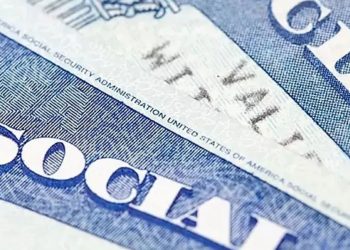The Centers for Disease Control and Prevention (CDC) has reported the identification of the new COVID-19 variant NB.1.8.1 across various regions in the United States, following a significant outbreak in China. The initial cases in the U.S. were recorded in late March and early April, identified through screening protocols for international travelers at airports.
A CDC representative stated, “The agency is aware of the reported instances of COVID-19 NB.1.8.1 in China and maintains regular communication with global health partners.”
Currently, the number of reported sequences of the NB.1.8.1 variant in the United States is insufficient for inclusion in the CDC’s variant estimates dashboard.
Concerns regarding hospitalizations abroad have prompted inquiries into the characteristics and implications of this new variant. Here’s an overview based on expert insights.
Symptoms Associated with the New COVID Variant
According to Subhash Verma, a microbiology and immunology professor at the University of Nevada, Reno School of Medicine, the symptoms linked to NB.1.8.1 are largely consistent with those observed in earlier virus strains. Commonly reported manifestations include respiratory issues such as coughing and sore throat, alongside systemic symptoms like fever and fatigue.
Assessment of the Variant’s Severity
“Current data suggests that NB.1.8.1 does not result in more severe illness than previous variants; however, it appears to possess a growth advantage, indicating a higher transmissibility,” Verma noted. Authorities in Hong Kong have stated that there is no evidence to suggest that this variant, which descends from the XDV lineage of the virus, poses greater severity than earlier strains.
Dr. Amy Edwards, an assistant professor specializing in infectious diseases at Case Western Reserve University’s School of Medicine, mentioned that laboratory evidence indicates this variant may bind more effectively to human cells, enhancing its transmissibility without necessarily resulting in more severe infections. She remarked, “What we are observing in regions such as China and Hong Kong, where this variant has surged, is an uptick in hospitalizations that appears to correlate more with a typical summer surge rather than increased severity attributable to the variant itself.”
COVID-19 Booster Shot for 2025
In light of the new variant’s heightened transmissibility, the Trump administration has announced plans to restrict access to booster vaccines for certain populations.
Last week, the Food and Drug Administration (FDA) indicated it would continue to authorize updates to COVID-19 vaccines for seniors and individuals with underlying medical conditions—including pregnancy or diabetes—while mandating extensive new clinical trials before permitting broader use of these vaccines. This policy may limit access to updated vaccinations for many Americans who do not have underlying health conditions.
Verma expressed concerns regarding these limitations and their potential public health implications: “While over 100 million Americans are anticipated to meet these criteria, this decision introduces new obstacles for the wider population. An immediate issue is that the FDA’s requirement for updated clinical trials could delay booster availability for lower-risk groups, possibly dissuading some from seeking vaccination. Furthermore, this new policy could lead to confusion and lower vaccination rates due to uncertainty about eligibility and concerns regarding insurance coverage, especially with high-cost manufacturers planning to implement charges.”
Edwards noted ambiguities surrounding the updated recommendations: “The language regarding pre-existing conditions is somewhat vague. Additionally, it remains unclear which variants will be included in this year’s vaccine, particularly given uncertainties about which vaccine trials will be permitted.”
The revised COVID-19 vaccination framework was established by the FDA’s new leadership under Health and Human Services Secretary Robert F. Kennedy Jr., who has publicly expressed skepticism regarding vaccines.
Dr. Céline Gounder, a CBS News medical contributor and public health editor at KFF Health News, commented on Secretary Kennedy’s assurances: “We heard Secretary Kennedy assert that vaccines would not be taken away and that transparency would be prioritized. However, the reality appears to be that individuals will lose access to vaccines.”
Alternative Infection Prevention Measures
With uncertainties surrounding vaccine access, Edwards emphasized that there remain effective strategies for infection prevention: “Practicing good cough and sneeze etiquette, thorough handwashing, and staying home when feeling unwell are essential measures to prevent spreading illness.” For individuals feeling slightly unwell yet still able to engage in activities, wearing a mask is advisable.
Despite ongoing debates about mask usage, Edwards asserted their efficacy in reducing transmission: “Masks have long been recognized as particularly effective in preventing an ill individual from transmitting infections to others. For instance, if I experience mild symptoms like a sore throat or slight nasal congestion—conditions that might not warrant staying home—wearing a mask can significantly lower









